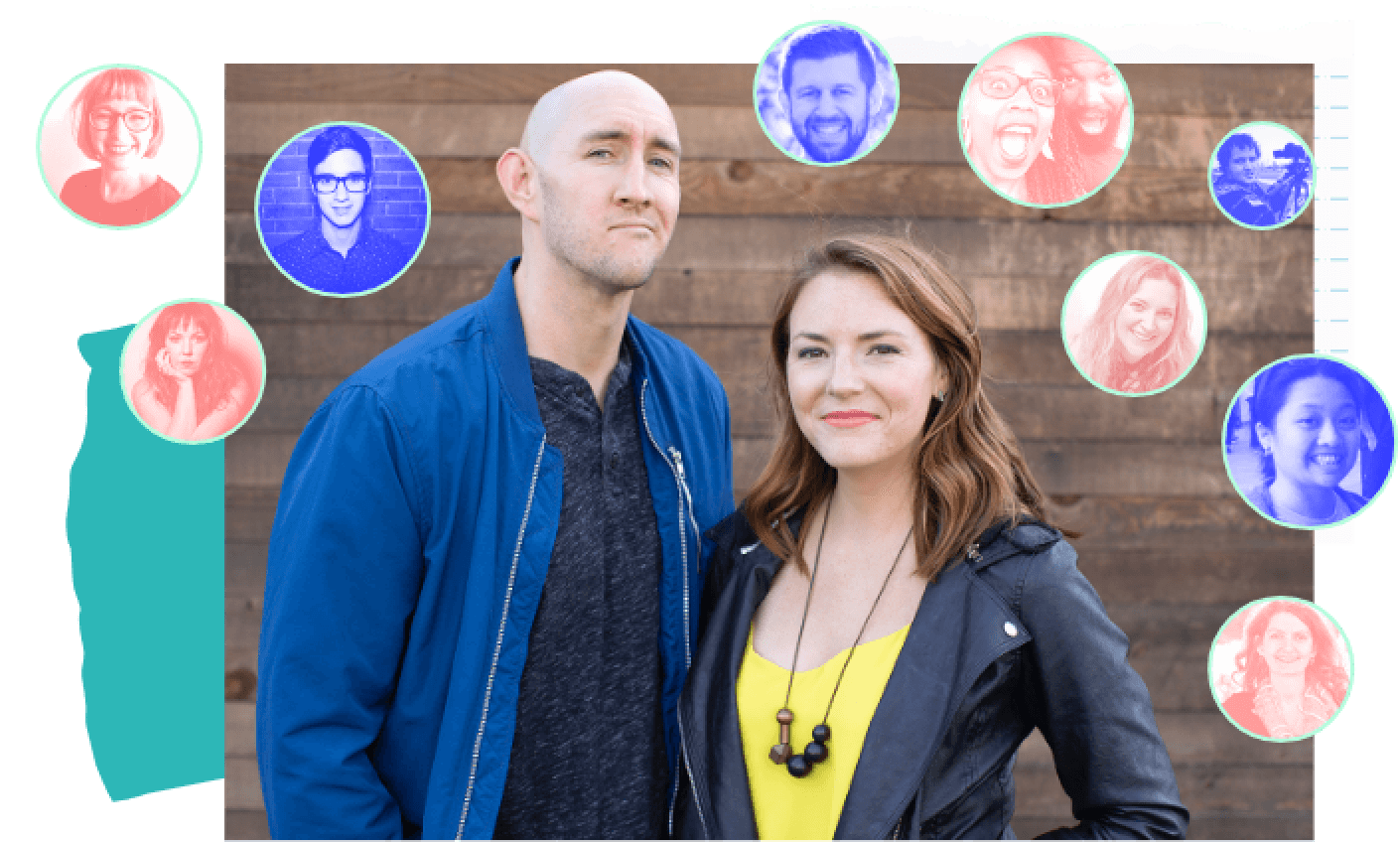On the path toward becoming successful in business, it’s easy to get off track and not listen to your gut.
It’s easy to let a shiny new idea or opportunity derail our progress. It’s human nature to let ourselves get pulled away from doing the actual work of getting where we want to go.
Since 2013, I’ve launched a big ole handful of new projects. From branding workshops to books, and from software products to selling my own future, I’ve tried to put things out into the world that help people and that align with my values. I consult those two priorities every time I’m considering a new idea.
I Don’t Always Listen To My Gut
There was, specifically, one project I launched recently that I just wasn’t sure about. It wasn’t super unique, and it wasn’t super sexy. I had some doubts about it because of that, but I had committed, so I stuck with it. I kind of felt like the project was taking me off the path I had created for myself and my business.
So what was this project that caused me inner turmoil? EasyCourse: a course to help people build online courses.

Why did this project even exist and what happened?
Well, my compass often points me in the direction of helping people take action with their businesses. Online courses are a big industry right now ($20+ billion big). I co-own an online course platform, and I’ve witnessed people in my entrepreneurial bubble creating courses that help other folks do what they’ve done (make and sell courses). But what I hadn’t seen was a very practical application of this how-to course. I thought people deserved a step-by-step process: do this on Day 1, Day 2, Day 3, etc.
EasyCourse was born. A 30-day practical guide that walks someone, step by step, through the online course creation process.
In customary fashion, I partnered with a friend (Omar Zenhom), who also had experience creating online courses. We’re both silly guys, and we enjoy teaching. We make a lot of dumb jokes when we’re together, and we thought we could inject our humor and knowledge into a project. And, we both often have people asking us how to build courses of their own.
Oh, one other thing to mention: every project I’m working on these days needs to be considered for our Wandering Aimfully Members. When I shared the idea for this new project with the existing buyers, as something they would get without paying a single extra dollar for, a ton of them jumped for joy (literally, I think, based on the emojis they used).
Suffice to say, there were lots of factors that indicated I was following my compass.
The project fell flat on its face, right? Crashed and burned in a blaze of glory? Wrong.
During our first launch, EasyCourse made good money. Despite my reservations about it, it was a course that people were looking for (and that stood out from the others). Even better than the money the course made, though, was that it made a bunch of people really happy and solved a problem for them:




What’s the problem, then? Was my gut wrong?
If a project makes money and makes people happy, shouldn’t you just suck it up, put the compass in your pocket, and deal with the slightly uncomfortable feelings in your gut?
You can, and it might be tempting to do so. But at some point, your inner turmoil will win out over the positive feelings that come with money and praise. And more importantly, if the audience for the product or service you are selling is not an audience you are extremely excited to support, it can be very difficult to convince yourself to continue working on the project.
Learning Lessons By Listening To Your Gut
For me, the big lesson learned was: working with beginner-level folks is not for me.
I’m very appreciative of the first group of folks who bought EasyCourse; however, it became abundantly clear to me that we’d built a product for a beginner-level audience, an audience that I hadn’t built something for previously.
Every time someone asked a question about a very simple problem or issue, I could feel my inner turmoil bubbling up like a dormant volcano getting ready to erupt. I mean absolutely no offense to the folks who bought EasyCourse, but it became extremely clear to me that I am not interested in holding someone’s hand through every step of a process. This was a path I hadn’t really gone down before in business. I can’t remember ever defining if I only wanted to work with beginners or more experienced people, but this was the first project that was purposely planned for beginners. That plan, I now realize, is not a plan I want to use for any project moving forward (which is a good lesson to learn, but learning good lessons can kind of suck).
Are you ready to support the customers who will buy your product or service?
As much as I wanted to create something different (a practical, step-by-step course), I was not prepared to support the type of person who was going to need 10x the step-by-stepping I had envisioned.
I don’t want this to sound like doom and gloom, though. What we built with EasyCourse was incredibly helpful for a group of people. The process of creating it was mostly fun work (especially with my buddy Omar bringing the laughs, and our significant others adding their awesome expertise to the project as well).
Aside from the revenue and helping some folks break through and achieve a goal of their own, I’m very appreciative that I learned a solid lesson in the process: Working with beginners is not for me. If an opportunity like that comes up again, I’ll know to check in with my compass and get back on the right path.
There may be more beginners out there waiting to purchase beginner-level content and projects, but I’d rather focus on creating things for folks who have already gotten started. This very well could be leaving money on the table, because it’s no secret that it can be easier to sell to someone when you’re selling them the dream of what could be. But I’m not a dream salesman. I’m a practical-application-of-lessons-I’ve-learned salesman. And the lessons I’ve learned and can teach will better help someone who’s had experience and is willing to put in the work, knowing not every step in the process is going to be handed to them.
Sometimes, it’s better to know what you don’t want to do, so you can make room for things you do want to do.
You don’t have to fail to learn important business lessons
EasyCourse was not a failure by any means, but it was a reality check. I’m guessing you’ve had projects or opportunities that sound similar to this story. Heck, you might even be a little lost in the woods right now as you head down paths you aren’t sure you want to be going down.
Now’s the time to check your compass.
Now’s the time to listen to your gut and move on from a project you suspect isn’t right for you.
Grab hold of your life, find your true north, and stay on the path. Pro tip: it’s probably not the paved one.







